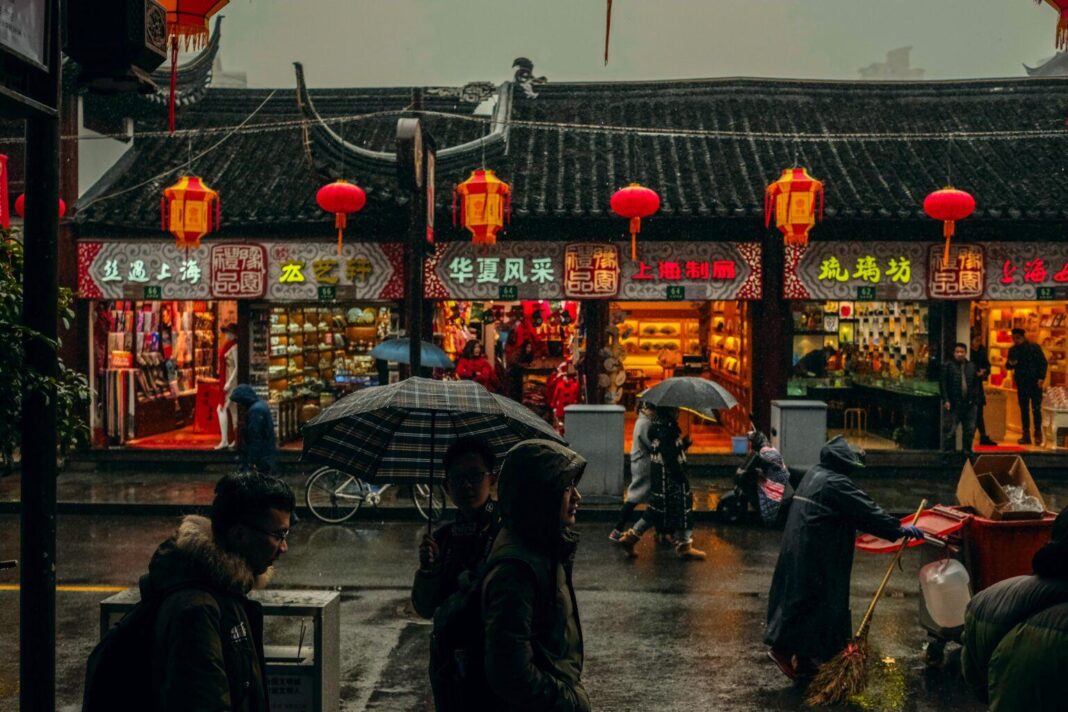China’s economy is going through some of the same growing pains that Japan once experienced: lower consumer spending, overbuilding on homes and offices, local government debt that runs into the trillions of dollars, and high unemployment among young people. The run of impressive growth rates seems to be over; it’s now hovering around three percent.
By just about any measure—GDP, exports, prices of goods and services—China’s economy is growing much more slowly than before the COVID pandemic hit. The Xi Jinping regime is trying to get people to spend more, get the real estate market to halt construction of office buildings without renters, and get local governments to become more financially responsible.
China had been the world’s leading exporter. Exports have driven a good deal of China’s rise, and account for about a fifth of the economy. But as happened in Japan in the 1980s, Chinese exports have slumped badly, with exports to the US falling most of all. China’s imports are down too.
Mexico has replaced China as the US’s biggest trade partner. Chinese officials are wooing foreign investors with talk of 2023 as the “Year of Investment in China.” But investors are wary, and many are abandoning China for more favorable climes.
Is China, like Japan back then, on the verge of long-term stagnation? Should US and European leaders be happy about that? Will Xi need to pump up the economy with some kind of stimulus program?
Questions of this sort point to just how important China’s economy is to the world, not to mention to the fate of China’s party-state leadership. Some China watchers think Beijing’s economic woes are behind the renewed interest in dialogue with the US.
Keith Bradsher of the New York Times, for instance, writes: “Now the faltering economy appears to have helped prompt a shift in the willingness of senior Chinese officials to engage in diplomatic talks with geopolitical rivals abroad, and to show more openness on economic policy at home.”
I don’t know what’s behind “appears to have helped,” since—as I’ve written recently on treasury secretary Janet Yellen’s China trip—resumption of dialogue with US officials has not altered either side’s position on the most pressing issues that divide the two countries.
I think the connection Bradsher tries to make between economic weakness and greater foreign policy flexibility is flawed, just as it was last November, following the Biden-Xi summit meeting in Bali, when some top US officials also thought Beijing was ripe for making concessions because of its economic and social challenges.
Then came the spy balloon incident and all bets were off. Bradsher is more accurate when he writes later in his article:
“Still, analysts noted that any softening in approach remained limited to economic or business policies that did not involve China’s national security, which has become a defining feature of Chinese policy in recent years. And there are few signs that the top leader, Xi Jinping, has endorsed a broad policy shift toward the United States, a step that would be necessary for any change to take root.”
Except for the months following the balloon incident, China’s leaders have consistently been open to talks with the US. US leaders have been the same. Talking is not the stumbling block; acting in ways that reduce tensions and convey respect is.
Mel Gurtov is Professor Emeritus of Political Science at Portland State University, Editor-in-Chief of Asian Perspective, an international affairs quarterly and blogs at In the Human Interest.

